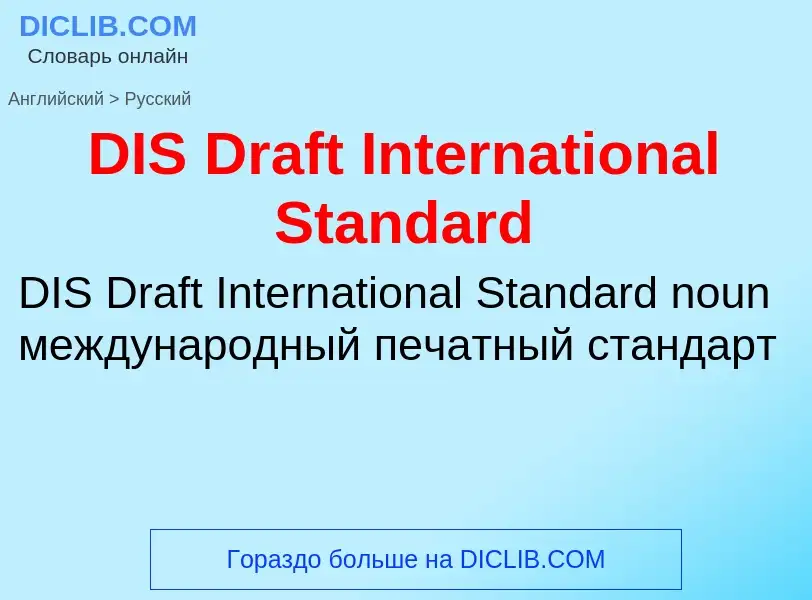ترجمة وتحليل الكلمات عن طريق الذكاء الاصطناعي ChatGPT
في هذه الصفحة يمكنك الحصول على تحليل مفصل لكلمة أو عبارة باستخدام أفضل تقنيات الذكاء الاصطناعي المتوفرة اليوم:
- كيف يتم استخدام الكلمة في اللغة
- تردد الكلمة
- ما إذا كانت الكلمة تستخدم في كثير من الأحيان في اللغة المنطوقة أو المكتوبة
- خيارات الترجمة إلى الروسية أو الإسبانية، على التوالي
- أمثلة على استخدام الكلمة (عدة عبارات مع الترجمة)
- أصل الكلمة
DIS Draft International Standard - ترجمة إلى إنجليزي
нефтегазовая промышленность
международная стандартизация
общая лексика
IS
международный стандарт
серия стандартов, разработанная ISO
تعريف
---
Николай Христианович (1823-95) , российский государственный деятель, экономист, академик Петербургской АН (1890). В 1881-86 министр финансов. В 1887-95 председатель Кабинета министров. Проводил политику протекционизма, правительственного финансирования промышленности. Инициатор отмены подушной подати.
ويكيبيديا
In computer network engineering, an Internet Standard is a normative specification of a technology or methodology applicable to the Internet. Internet Standards are created and published by the Internet Engineering Task Force (IETF). They allow interoperation of hardware and software from different sources which allows internets to function. As the Internet became global, Internet Standards became the lingua franca of worldwide communications.
Engineering contributions to the IETF start as an Internet Draft, may be promoted to a Request for Comments, and may eventually become an Internet Standard.
An Internet Standard is characterized by technical maturity and usefulness. The IETF also defines a Proposed Standard as a less mature but stable and well-reviewed specification. A Draft Standard was an intermediate level, discontinued in 2011. A Draft Standard was an intermediary step that occurred after a Proposed Standard but prior to an Internet Standard.
As put in RFC 2026:
In general, an Internet Standard is a specification that is stable and well-understood, is technically competent, has multiple, independent, and interoperable implementations with substantial operational experience, enjoys significant public support, and is recognizably useful in some or all parts of the Internet.


![Memorial plaque of founding ISA in [[Prague]]. Memorial plaque of founding ISA in [[Prague]].](https://commons.wikimedia.org/wiki/Special:FilePath/Memory plaque of founding ISA in Prague cropped.jpg?width=200)
